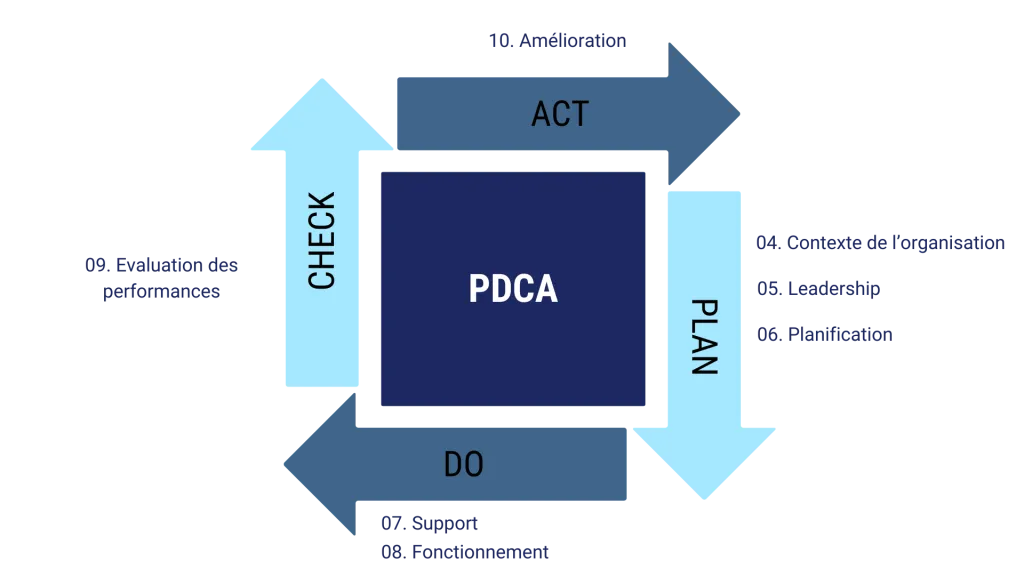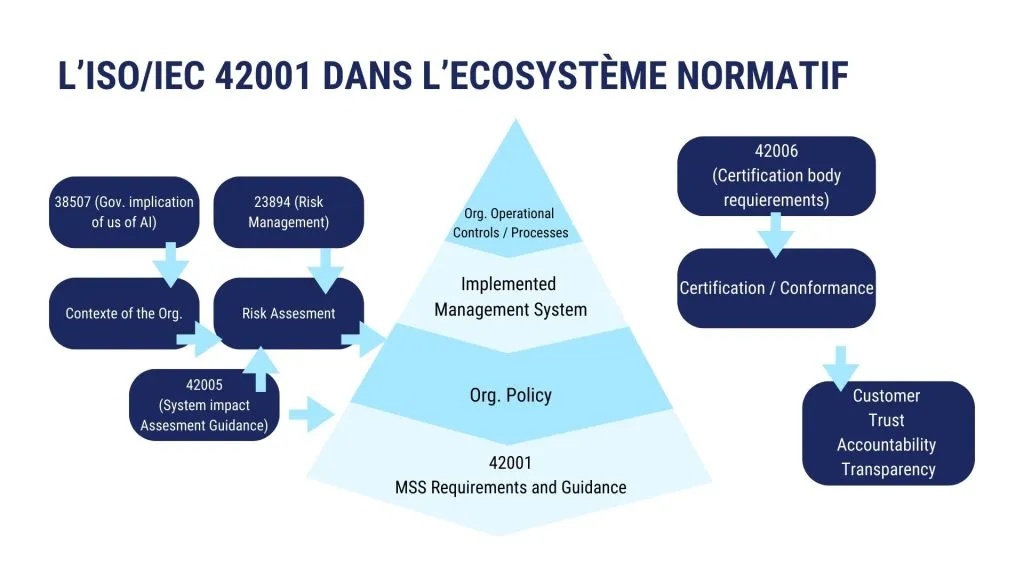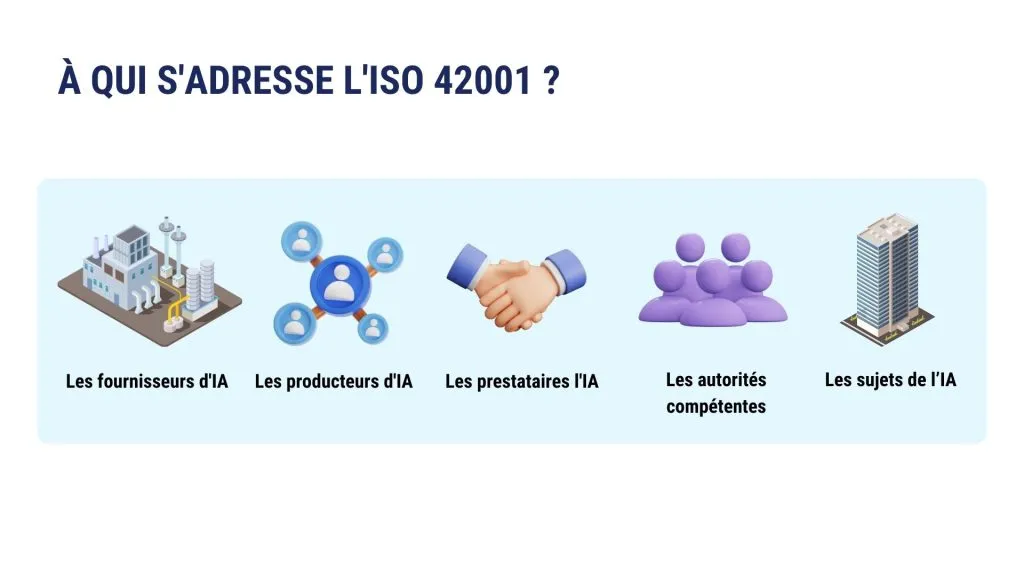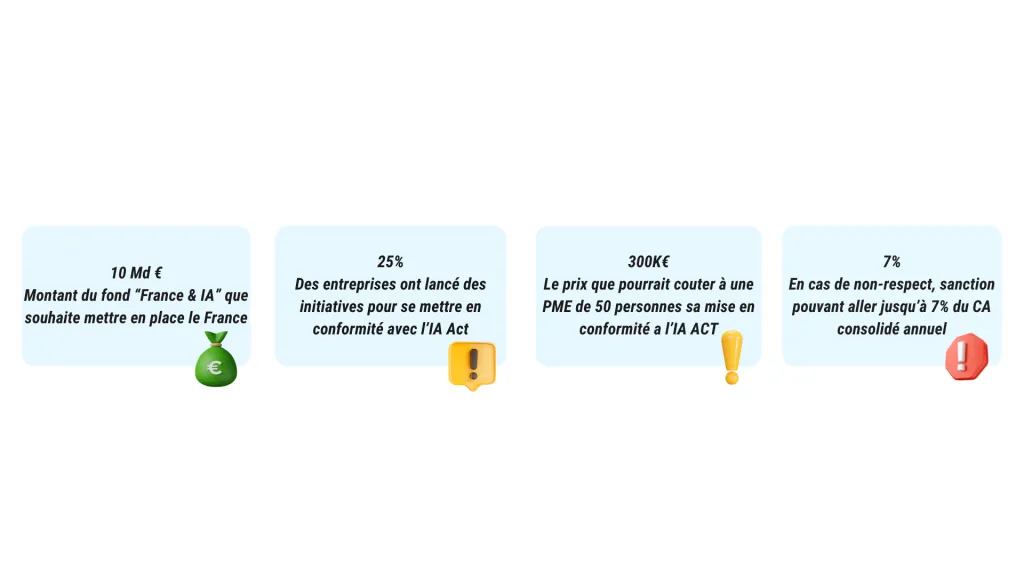
Artificial intelligence (AI) has evolved rapidly in recent years. In a world where it represents a genuine technological breakthrough, the challenges associated with its safety, ethics and regulation are becoming increasingly complex.
ISO 42001, an international standard covering AI management systems, was published in December 2023, helping to limit various potential abuses such as algorithmic discrimination, invasion of privacy through excessive data collection, or the negative impact on transparency and accountability of automated decisions.
As with any management system standard, ISO/IEC 42001 requires the implementation of an organization, documentation, internal audits and management reviews. However, it focuses specifically on the IA system, integrating impact assessment & additional risk analysis.
This risk analysis can be implemented by following the method used in the NIST guideline, which provides a structured set of guidelines designed to manage the potential risks associated with the use and deployment of artificial intelligence.
ISO 42001 is the first AI management system standard. It has emerged as a key standard, providing a structured framework for the management and assessment of AI systems. It is divided into 10 chapters, including :
1 - Scope
2 - Normative references
3 - Terms and definitions

Through its various chapters, ISO 42001 establishes requirements for implementing, maintaining and improving an AI management system within an organization. This will enable them to demonstrate a level of confidence in their organization and in their management of the risks associated with their AI system, based on the requirements of this standard.
To better understand the integration of different ISO standards in the context of artificial intelligence management, the diagram below illustrates the structure and interconnections between ISO 42001 and other relevant standards.

Source : Cyberzone FEELAGILE 49 : Deciphering ISO 42001 with LNE
ISO 42001 forms the basis of this scheme, providing the fundamental requirements and guidelines for AI management systems. By defining organizational policies relating to AI, ISO 42001 serves as the foundation on which operational management systems and processes are implemented.
These elements then enable the certification and compliance crucial to establishing trust, accountability and transparency with customers. Other standards, such as ISO 38507, 23894 and 42005, complement ISO 42001. They provide specific guidelines for risk assessment and system impact. In addition, they aim to ensure comprehensive, harmonized AI management within organizations.
Let's take a look at who may be affected by ISO 42001:

Source : Cyberzone FEELAGILE 49 : Deciphering ISO 42001 with LNE
An organization can obtain 42001 certification to comply with part of the requirements of the IA Act. AFNOR offers 42001 certification for those wishing to anticipate the implementation of the IA Act.
42001 certification enables :
Source : AFNOR

Source : Cyberzone FEELAGILE 49 : Deciphering ISO 42001 with LNE
The importance of the IA Act for players in the world of artificial intelligence
The ISO 42001 standard enables a company to comply with part of the IA Act. This regulation aims to regulate and promote the development and marketing of AI systems in the European Union.
These regulations will be mandatory for all organizations working with AI. So it's time to get ready!

If you too would like to prepare for ISO 42001 certification, our specialized teams will be able to support you, train you and also help you pass this certification. Contact our team!